


Scan here for certificate grain free

Dari alam liar yang menakjubkan hingga hutan yang asri, dari padang rumput yang luas hingga kedalaman laut yang misterius, KitchenFlavor tak pernah berhenti mencari kelezatan terbaik.
Read moreTemukan inspirasi dari para pelanggan kami. Mereka sudah membuktikannya.
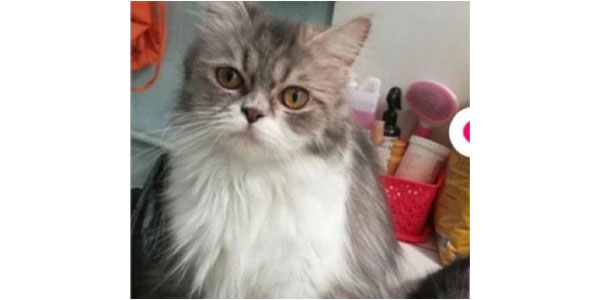
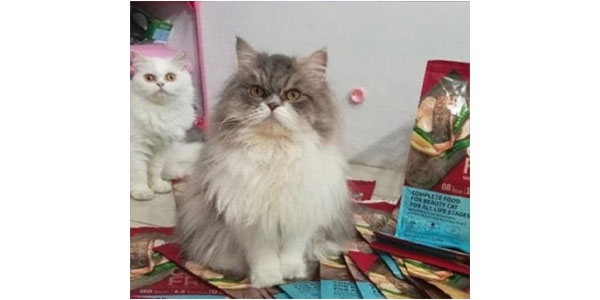
Kitten ku makan ini, bulunya gak rontok dan makannya bisa smpe 6x sehari
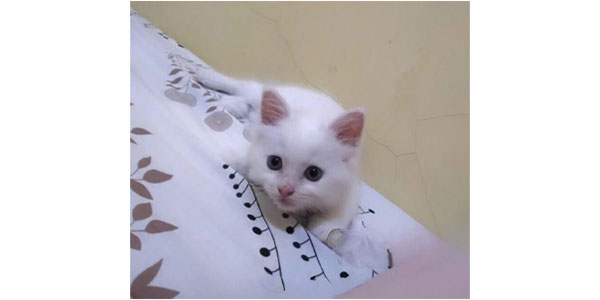
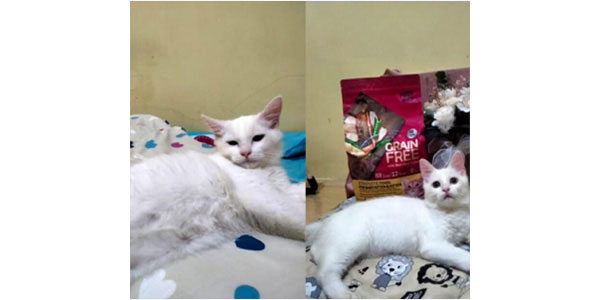
Recomend ini, buat yg sensitif pencernaan malah cocok pake ini .

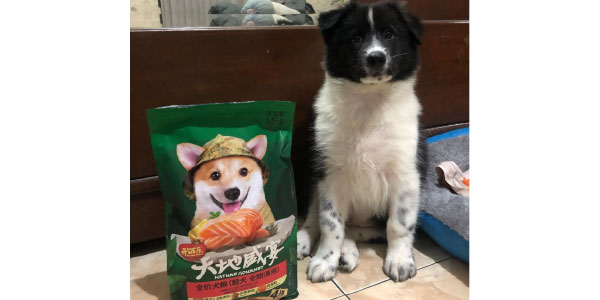
Anabulku pake varian beauty bener-bener bagus banget untuk bulu
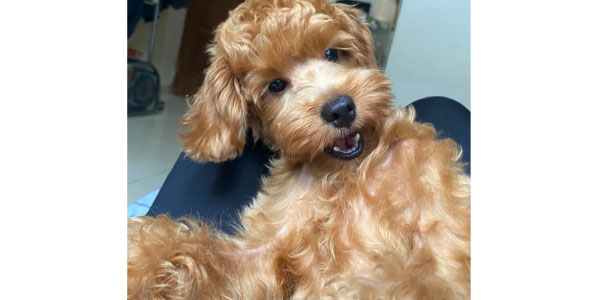
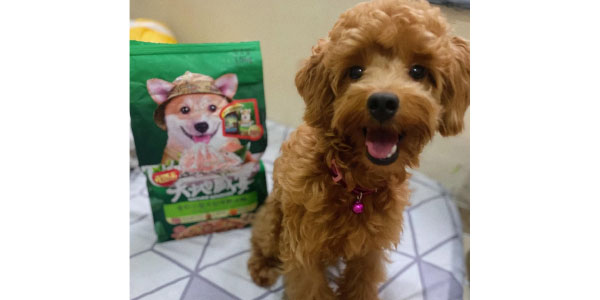
Kitchen flavor itu baguus yah ternyata, aku kasih dgn takaran yg sama dgn merk lain (harga sama), tp pupul bisa kenyang ga rewel, klo merk lain rewel banget
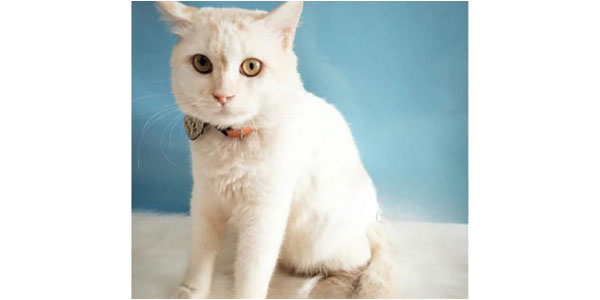
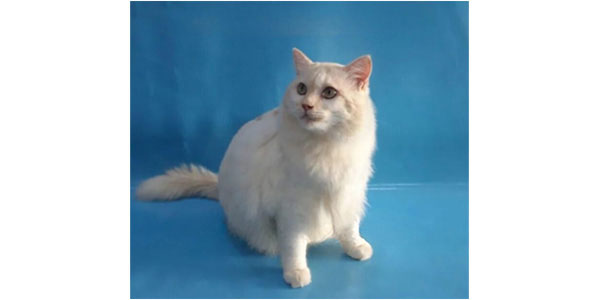
Anabulku dua-duanya pakai dry food dr kitchen flavor pada doyan, dan yang pasti bagussss bgt
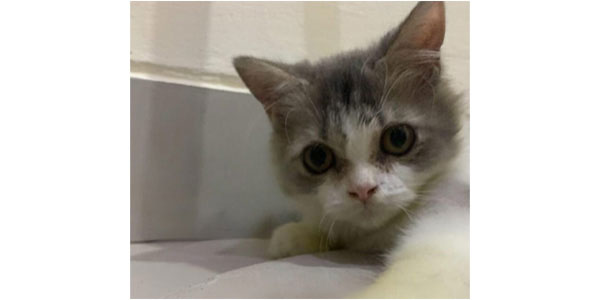
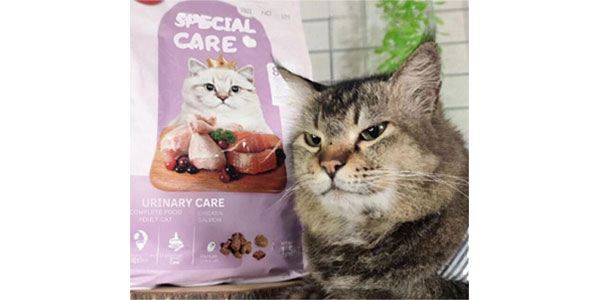
kucingku dulu makan banyak tapi ga gemuk malah kurus bangettttttt kayak kucing dom, terus aku pake kitchen flavour jadi bagus gendut kayak beda kucing
Pentingnya Mengenali Tanda Bahaya Sistem pencernaan yang sehat adalah kunci bagi kualitas hidup kucing Anda. Gangguan pencernaan adalah masalah umum yang dapat berkisar dari ketidaknyamanan ringan hingga kondisi serius. Sebagai pemilik, mengenali gejala awal dan memahami penanganan yang tepat sangatlah krusial. Penyakit pencernaan (gastrointestinal) dapat mempengaruhi perut, usus halus, usus besar, atau seluruh saluran cerna kucing. Penyebab Utama Gangguan Pencernaan Penyebab masalah pencernaan pada kucing sangat beragam, antara lain: Perubahan Diet Mendadak: Transisi pakan yang terlalu cepat dapat mengganggu keseimbangan bakteri usus. Alergi atau Intoleransi Makanan: Reaksi terhadap bahan tertentu (misalnya protein tertentu atau biji-bijian). Parasit: Cacing atau protozoa (seperti Giardia atau Coccidia). Menelan Benda Asing: Rambut (hairball) atau benda lain yang tidak bisa dicerna. Penyakit Serius: Inflammatory Bowel Disease (IBD), hipertiroidisme, penyakit ginjal, atau limfoma (kanker usus). Penanganan dan Perawatan di Rumah (Kasus Ringan) Jika kucing Anda mengalami diare atau muntah ringan dan masih terlihat aktif (tidak lesu), beberapa langkah penanganan di rumah dapat membantu: Puasa Singkat: Untuk meredakan usus yang meradang, puasakan makanan padat selama 12 jam (tetap berikan air minum). Diet Hambar (Bland Diet): Setelah puasa, berikan makanan hambar dalam porsi kecil dan sering. Contoh: ayam rebus tanpa kulit dan nasi putih polos (rasio 1:2), atau makanan diet khusus dari dokter hewan. Probiotik: Berikan suplemen probiotik khusus hewan peliharaan untuk mengembalikan keseimbangan flora usus yang sehat. Pastikan Hidrasi: Sangat penting untuk memastikan kucing minum cukup air untuk menghindari dehidrasi, terutama saat muntah atau diare. PERHATIAN: Jangan pernah memberikan obat bebas untuk manusia tanpa izin dokter hewan, karena banyak obat yang beracun bagi kucing! Kapan Harus ke Dokter Hewan? Gangguan pencernaan pada kucing dapat memburuk dengan cepat. Segera hubungi dokter hewan jika kucing Anda menunjukkan salah satu tanda berikut: Muntah atau Diare Berlanjut lebih dari 24 jam. Lesu atau Lemah Total (tidak mau bergerak atau tidak merespons). Muntah Berdarah atau Diare Berdarah/Hitam Pekat. Gusi Pucat (tanda dehidrasi atau anemia). Demam Tinggi. Penanganan Medis yang Mungkin Dilakukan Dokter Hewan: Pemeriksaan Diagnostik: Tes darah, tes feses, USG, atau rontgen untuk mencari penyebab pasti (misalnya benda asing atau IBD). Terapi Cairan (Infus): Untuk mengatasi dehidrasi berat. Obat Anti-Muntah/Anti-Diare: Obat untuk menenangkan saluran cerna. Perubahan Diet Terapi: Dokter hewan sering meresepkan pakan resep khusus (Veterinary Diet) yang dirancang untuk mendukung kesehatan usus. Dengan pemantauan yang cermat dan tindakan cepat, sebagian besar gangguan pencernaan pada kucing dapat ditangani dengan sukses. Dukung Kesehatan Pencernaan Setiap Hari Untuk kucing dengan pencernaan sensitif atau riwayat muntah, diare, atau intoleransi makanan, nutrisi harian memegang peran penting dalam pemulihan jangka panjang dan kenyamanan hidup. Pilih Kitchen Flavor Digestive Care, diformulasikan dengan bahan mudah dicerna, serat seimbang, dan nutrisi penting untuk mendukung kesehatan usus, kualitas feses yang lebih baik, dan kesejahteraan secara menyeluruh. Kamu dapat menemukannya di toko resmi online kami atau di pet shop terdekat. Berikan nutrisi lembut dan tepat sasaran yang mereka butuhkan — dan bantu mereka merasa lebih nyaman dari dalam, satu mangkuk setiap kali.
Mengapa Sistem Imun Kucing Sangat Penting? Sistem kekebalan tubuh (imunitas) kucing adalah jaringan kompleks sel, organ, dan protein yang melindungi mereka dari penyakit, bakteri, virus, dan parasit. Imunitas yang kuat ibarat perisai tak terlihat yang memastikan kucing Anda dapat menjelajahi dunia (atau setidaknya rumah Anda) dengan aman. Ketika imunitas kucing menurun—seringkali akibat stres, nutrisi yang buruk, atau penyakit—mereka menjadi rentan terhadap infeksi umum seperti flu kucing, masalah kulit, atau gangguan pencernaan. Oleh karena itu, menjaga imunitas adalah upaya pencegahan terbaik untuk memastikan kesehatan jangka panjang dan kualitas hidup yang optimal bagi si “Manis”. Pilar Utama untuk Meningkatkan Imunitas Kucing Meningkatkan kekebalan tubuh kucing memerlukan pendekatan holistik, meliputi diet, lingkungan, dan pencegahan medis. 1. Nutrisi Lengkap dan Seimbang Makanan adalah fondasi dari imunitas yang kuat. Kekurangan nutrisi—bahkan yang kecil—dapat melemahkan respons kekebalan. Protein Berkualitas Tinggi: Pastikan makanan kucing Anda mengandung protein hewani sebagai bahan utama. Protein menyediakan asam amino yang penting untuk membangun sel-sel kekebalan. Asam Lemak Omega: Omega-3 dan Omega-6 (ditemukan pada minyak ikan) memiliki sifat anti-inflamasi yang kuat, membantu mengurangi peradangan kronis yang dapat menekan imunitas. Antioksidan: Vitamin E, Vitamin C, dan Beta-Karoten (sering ditemukan dalam sayuran) melindungi sel-sel tubuh dari kerusakan radikal bebas. 2. Manajemen Stres dan Lingkungan yang Tenang Stres adalah salah satu pembunuh imunitas terbesar pada kucing. Ketika kucing stres, tubuhnya memproduksi hormon kortisol yang dapat menekan fungsi kekebalan. Penyediaan Sumber Daya: Pastikan setiap kucing memiliki akses yang cukup ke tempat makan, tempat minum, kotak pasir, dan area istirahatnya sendiri. Enrichment: Sediakan mainan, pohon panjat (cat tree), dan waktu bermain interaktif setiap hari untuk mengurangi kebosanan dan kecemasan. Feliway/Difuser: Gunakan diffuser pheromone untuk membantu menciptakan lingkungan yang lebih tenang, terutama jika ada perubahan besar di rumah (misalnya, kedatangan hewan peliharaan baru atau pindah rumah). 3. Kesehatan Usus melalui Probiotik Saluran pencernaan (usus) adalah tempat tinggal bagi sekitar 70% sel kekebalan tubuh kucing. Oleh karena itu, usus yang sehat berarti imunitas yang kuat. Probiotik: Pemberian suplemen probiotik khusus kucing dapat menyeimbangkan bakteri baik di usus (gut flora), yang membantu melawan patogen dan memperkuat lapisan usus. Serat Prebiotik: Serat larut (sering ada dalam makanan premium) memberi makan bakteri baik di usus. 4. Jadwal Vaksinasi dan Pemeriksaan Rutin Pencegahan medis adalah bagian penting dari imunitas yang diprogram. Vaksinasi Teratur: Pastikan kucing Anda mendapatkan vaksin inti (seperti FVRCP dan Rabies) sesuai jadwal yang direkomendasikan dokter hewan. Vaksinasi mengajarkan sistem kekebalan untuk mengenali dan melawan penyakit tertentu. Kunjungan Tahunan ke Dokter Hewan: Pemeriksaan rutin memungkinkan deteksi dini masalah kesehatan (seperti penyakit gigi atau ginjal) sebelum masalah tersebut melemahkan sistem imun. 5. Tidur yang Cukup dan Kebersihan Lingkungan Sama seperti manusia, kucing membutuhkan tidur yang berkualitas untuk memulihkan diri dan menguatkan respons kekebalan. Area Istirahat Aman: Pastikan kucing memiliki tempat yang hangat, tenang, dan aman untuk tidur tanpa gangguan. Kotak Pasir Bersih: Menjaga kebersihan kotak pasir dan tempat makan secara rutin meminimalkan paparan terhadap bakteri dan parasit, mengurangi beban kerja sistem kekebalan. Kesimpulan Imunitas adalah harta karun kesehatan kucing Anda. Dengan memberikan nutrisi premium, meminimalkan stres, dan tetap rutin dalam pemeriksaan medis, Anda secara proaktif membangun pertahanan terkuat bagi si “Manis”. Bangun Kekebalan Tubuh dari Dalam Jika kamu ingin mendukung pertahanan alami kucingmu dengan nutrisi harian yang bekerja secara proaktif, pilih Kitchen Flavor Immunity Care. Diformulasikan dengan protein hewani berkualitas tinggi, asam lemak esensial, dan antioksidan pendukung imun, produk ini membantu memperkuat kekebalan tubuh, mengurangi kerentanan terhadap infeksi, dan mendukung vitalitas jangka panjang. Kamu bisa menemukannya di toko resmi online kami atau di pet shop terdekat. Berikan nutrisi yang melindungi mereka setiap hari — karena sistem imun yang kuat adalah hadiah terbesar untuk hidup yang sehat dan bahagia.
Dalam beberapa tahun terakhir, tren diet grain free (bebas biji-bijian) telah menjadi pembicaraan utama di kalangan pemilik hewan peliharaan, khususnya anjing dan kucing. Namun, apakah diet ini benar-benar penting? Jawabannya terletak pada memahami kebutuhan nutrisi alami sahabat berbulu kita. Anjing dan kucing secara genetik adalah karnivora, yang berarti sistem pencernaan mereka secara alami dirancang untuk memproses protein hewani. Meskipun anjing telah berevolusi untuk bisa mencerna karbohidrat (termasuk biji-bijian) lebih baik daripada kucing, kelebihan biji-bijian (seperti jagung, gandum, atau kedelai) dalam diet tetap dapat menimbulkan masalah. Mengapa Grain Free Penting? Konsep grain free bukan hanya tentang menghindari karbohidrat, melainkan tentang mengoptimalkan sumber nutrisi dan mengurangi potensi pemicu alergi. 1. Mengurangi Risiko Alergi dan Sensitivitas Pakan Biji-bijian, terutama gandum dan jagung, adalah salah satu pemicu alergi makanan yang paling umum pada anjing dan kucing. Reaksi alergi ini dapat bermanifestasi dalam bentuk: Gatal-gatal kronis dan peradangan kulit. Infeksi telinga berulang. Gangguan pencernaan (diare atau muntah). Dengan menghilangkan biji-bijian, diet grain free secara signifikan mengurangi paparan terhadap alergen ini. 2. Mempermudah Pencernaan (Digestibilitas Tinggi) Sebagai karnivora, sistem pencernaan kucing (karnivora wajib) dan anjing (karnivora fakultatif) bekerja paling efisien ketika memecah protein dan lemak. Pakan Grain-Free: Umumnya memiliki kandungan protein hewani yang lebih tinggi dan mengganti biji-bijian dengan karbohidrat kompleks yang lebih mudah dicerna, seperti kentang, ubi jalar, atau kacang-kacangan tertentu. Hal ini membantu penyerapan nutrisi yang lebih baik. 3. Mengontrol Gula Darah dan Berat Badan Biji-bijian sering kali memiliki indeks glikemik yang tinggi, yang dapat menyebabkan lonjakan gula darah. Bagi hewan peliharaan, terutama yang rentan terhadap diabetes atau obesitas, diet grain free dapat membantu menjaga kadar gula darah lebih stabil karena mengutamakan sumber karbohidrat yang lebih lambat dicerna. Peran Kitchen Flavor dalam Diet Grain-Free Memilih produk grain free harus dilakukan dengan bijak. Kualitas bahan dan keseimbangan nutrisi adalah kuncinya. Di sinilah Kitchen Flavor menonjol sebagai pilihan terpercaya. Kitchen Flavor memahami kebutuhan diet alami anjing dan kucing, dan menawarkan solusi pakan grain free premium dengan keunggulan: Protein Hewani Sebagai Prioritas: Formulasi Kitchen Flavor selalu menempatkan sumber protein hewani berkualitas tinggi sebagai bahan utama, mendukung perkembangan otot yang kuat dan memenuhi kebutuhan energi karnivora. Pengganti Karbohidrat yang Sehat: Alih-alih menggunakan biji-bijian murah, Kitchen Flavor menggunakan bahan-bahan seperti ubi jalar, kacang polong, dan sayuran lain yang menyediakan serat dan energi, tetapi lebih mudah dicerna dan rendah pemicu alergi. Nutrisi Tambahan yang Seimbang: Pakan Kitchen Flavor diperkaya dengan asam lemak Omega (untuk kesehatan kulit dan bulu) serta vitamin dan mineral esensial lainnya, memastikan hewan peliharaan Anda tidak hanya bebas dari grain, tetapi juga menerima nutrisi lengkap. Kesimpulan Memberikan makanan grain free seperti Kitchen Flavor adalah investasi jangka panjang untuk kesehatan hewan peliharaan Anda. Ini adalah cara untuk menghormati genetika alami mereka dan memberikan nutrisi yang paling efisien, sehingga mereka dapat hidup lebih sehat, aktif, dan bebas dari masalah pencernaan atau alergi yang disebabkan oleh biji-bijian. Pilih Mangkuk yang Lebih Baik untuk Hidup yang Lebih Sehat Jika kamu siap mendukung kebutuhan nutrisi alami hewan kesayanganmu dengan makanan grain-free yang seimbang, pilih Kitchen Flavor Grain-free series. Diformulasikan dengan protein hewani berkualitas tinggi dan bahan-bahan yang mudah dicerna serta rendah risiko alergi, produk ini membantu hewanmu berkembang dengan pencernaan yang lebih sehat, kulit yang lebih baik, dan energi yang lebih stabil. Kamu bisa mendapatkannya dengan mudah di toko resmi online kami atau di pet shop terdekat. Berikan nutrisi yang sesuai dengan kebutuhan alaminya — dan lihat sendiri bagaimana mereka tumbuh lebih sehat, bahagia, dan penuh percaya diri di setiap mangkuk.